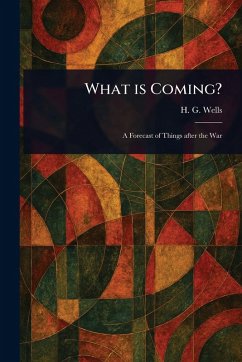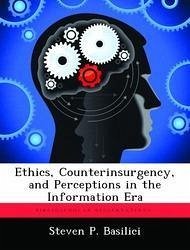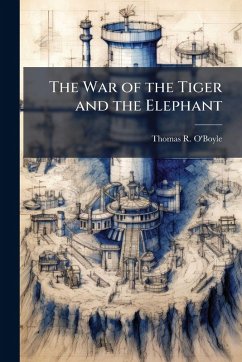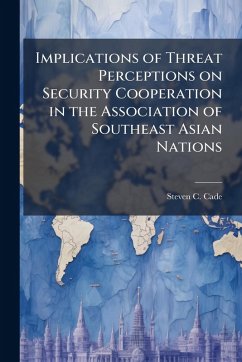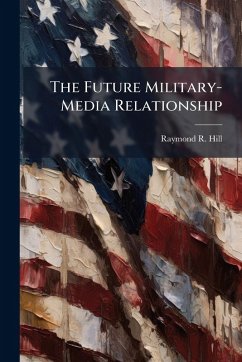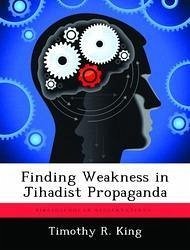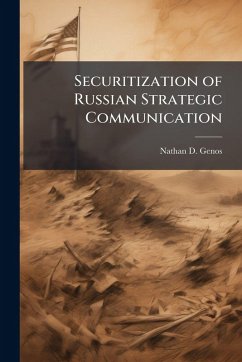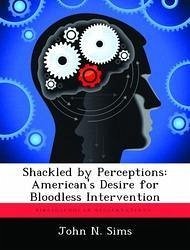
Shackled by Perceptions
American's Desire for Bloodless Intervention
Versandkostenfrei!
Versandfertig in über 4 Wochen
15,99 €
inkl. MwSt.

PAYBACK Punkte
8 °P sammeln!
Conventional wisdom holds that Americans eschew casualties. The U.S.-led victory over Iraq combined with a lack of consensus on America's role in the post-Cold War has generated an escalating political hypersensitivity to battle-deaths, both friendly and enemy alike. Consequently, in an effort to restrict "needless" deaths, U.S. political and military leaders continue to restricted the means by which the military projects power. Unfortunately, the military has responded by injecting this aversion to casualties into current military doctrine. This paper challenges conventional wisdom and examin...
Conventional wisdom holds that Americans eschew casualties. The U.S.-led victory over Iraq combined with a lack of consensus on America's role in the post-Cold War has generated an escalating political hypersensitivity to battle-deaths, both friendly and enemy alike. Consequently, in an effort to restrict "needless" deaths, U.S. political and military leaders continue to restricted the means by which the military projects power. Unfortunately, the military has responded by injecting this aversion to casualties into current military doctrine. This paper challenges conventional wisdom and examines the implications from such perceptions. Furthermore, through multiple case studies, this paper highlights the ramifications of the U.S. military including the goal of casualty limitation as a cornerstone of its doctrine. Oddly, America's lust for "bloodless" war is based on a single premise: the American public cannot tolerate casualties. This study refutes this premise. Nevertheless, this presupposition has led to numerous political assumptions, dictums, and revisions of politico-military doctrine. Before supporting an intervention, the American public looks to its leaders to illuminate the vital interests and principles at stake. This work has been selected by scholars as being culturally important, and is part of the knowledge base of civilization as we know it. This work was reproduced from the original artifact, and remains as true to the original work as possible. Therefore, you will see the original copyright references, library stamps (as most of these works have been housed in our most important libraries around the world), and other notations in the work. This work is in the public domain in the United States of America, and possibly other nations. Within the United States, you may freely copy and distribute this work, as no entity (individual or corporate) has a copyright on the body of the work. As a reproduction of a historical artifact, this work may contain missing or blurred pages, poor pictures, errant marks, etc. Scholars believe, and we concur, that this work is important enough to be preserved, reproduced, and made generally available to the public. We appreciate your support of the preservation process, and thank you for being an important part of keeping this knowledge alive and relevant.



